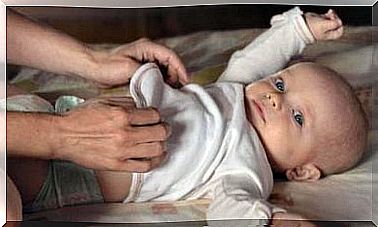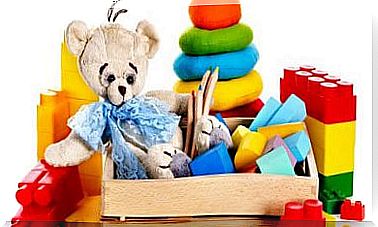Separation From Affiliates

If a child is bathed in love and affection, and has had a good bond with his parents since birth, appropriate development is guaranteed.
The child will become a person filled with self-confidence, good relationships and opportunities for success.
Attachment refers to a child’s bond with a primary caregiver, usually the mother, who sees the child’s biological needs. It manifests itself in smiles, tears, contact and communication, among other actions.
Emotional bond and stability
A secure attachment relationship guarantees a child’s emotional stability through its development. The consequences of a negative attachment relationship can result in insecurity, depression and anxiety disorders.
The mother’s personality and life experience affect how she treats her child. In turn, the child’s temperament also affects the parents’ behavior.
Independent and confident mothers build good relationships. However, indecisive mothers who live in the memories of their experiences will find it more difficult.
Positive emotional bonds promote learning. From 10 to 18 months, children start exploring the world. Knowing that they have someone who protects them through this stage gives them a sense of security.
Although the band begins to seize at 2 months of age, it is strongest at 2 years of age. At this time, separation from affiliates can cause harm.
This separation (for example, going to work or day care) can cause pain and anxiety. If the child understands that its parents will return, it will begin to learn.
Therefore, the child will begin to bond with secondary affiliates, such as teachers, and become more autonomous. The child will want to discover the new environment that surrounds it.

Phases of attachment
There are four phases of attachment:
- From birth to 2 months, when the baby accepts everyone who gives it comfort.
- From 2 to 7 months, the child does not protest if the parents leave it.
- From 7 to 30 months, he feels pain and agony in front of strangers.
- In phase four, after 30 months, he does not get upset when his caregiver leaves him.
Once built, the connection can be secure. It is based on affection from the parents, who responds to the needs of the child, who develops the belief in himself.
Fear and insecurity
An insecure attachment, there are shortcomings in the care. On the other hand, there is avoidance of attachment where the child only trusts himself and no one else.
In an ambivalent attachment, however, the child has a negative perception of himself, and a positive perception of others.
When separation from attachments occurs before the child is 6 months old, the consequences are not so severe. The child can get used to short and frequent distances.
From 6 months to 2 years, longer separation from affiliates can trigger problems.
A loss of attachments can seriously affect a child’s personality. Adoption or longer hospital stays can cause long-term effects.

Effects of separation from associates
In the short term, this loss can generate stress, upset and depression.
In the long run, if the child does not establish new attachment patterns, there may be an intellectual retardation, and problems in social relationships.
Separation anxiety with associates affects adults more than children, with 7% of adults affected, versus 4% of children. It is a fear of being separated from its protective and affectionate persons.
It is very typical between the ages of 1 and 6, and is expressed through tears and tantrums.
When the fear or anxiety is maintained over time, and when it affects the adult, then there is a problem. It manifests itself in a constant fear of being alone, or of leaving the house. The death of an addict causes grief and they suffer from nightmares.
They also experience headaches, abdominal pain, nausea and vomiting. If the symptoms exceed 4 weeks in adults and adolescents, or 6 weeks in adults, it is advisable to seek psychological help.
Relationships with children are not built on material things. Listening to them, talking about their concerns, and contributing quality time is vital to building a strong relationship.
This will prevent separation from associates from becoming an insurmountable trauma.









